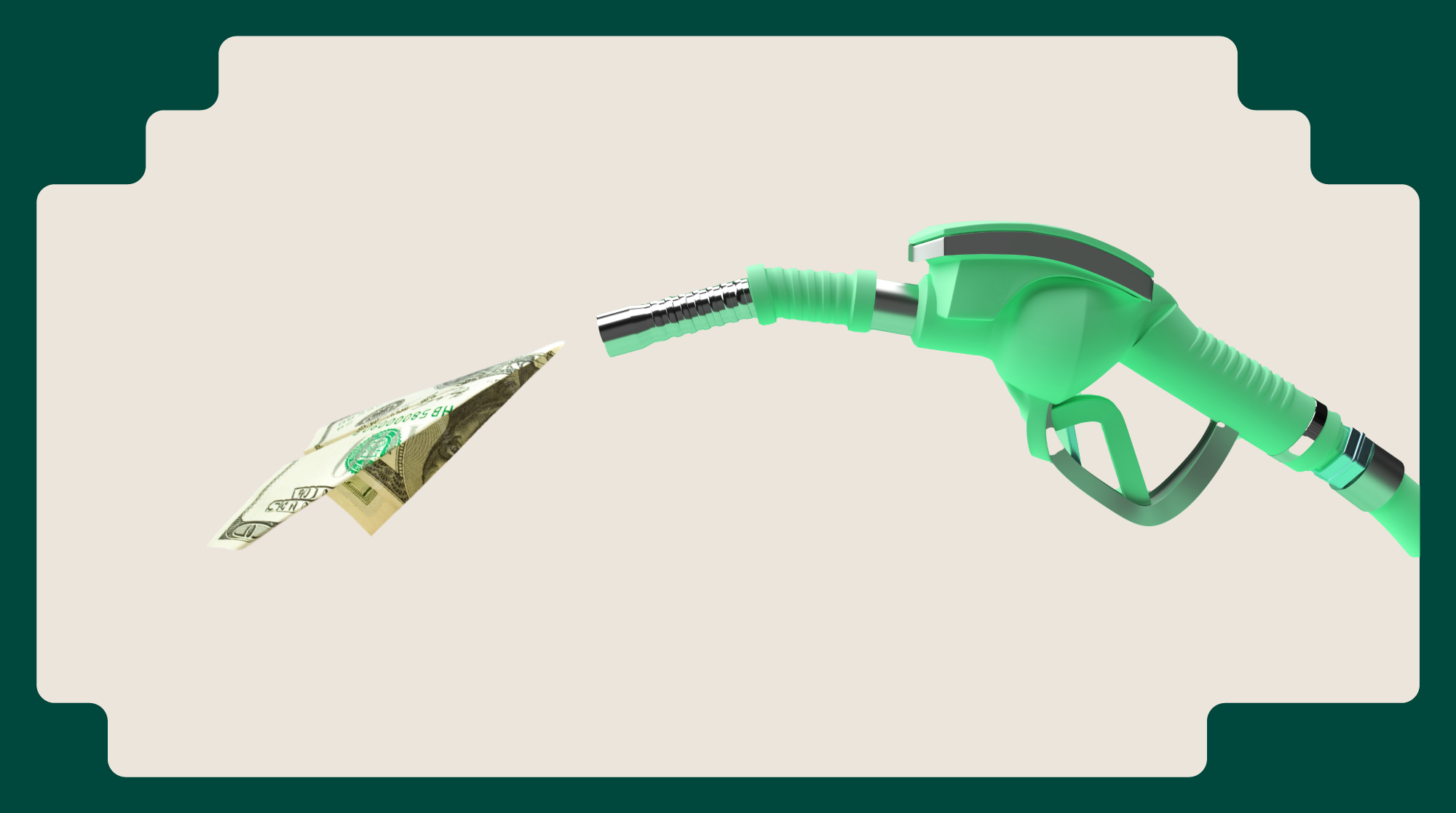Fuel subsidy has been a longstanding subject of debate and contention within Nigeria’s economic landscape. Its significance spans far beyond the mere provision of affordable fuel; it intersects with the country’s economic stability, societal welfare, and prospects for wealth creation.
Nigeria, known for its rich oil reserves, has heavily relied on fuel subsidies to maintain reasonable consumer prices and social stability. However, this practice has not been without its challenges, sparking discussions about its role in fostering or hindering the nation’s wealth-building efforts.
Fuel subsidies have played a pivotal role in shaping the Nigerian economy, yet their implications are far-reaching and complex. Understanding the intricate relationship between fuel subsidy and wealth creation necessitates a closer examination of its mechanisms, historical context, economic impacts, and potential alternatives. This article delves into these aspects, aiming to unravel the nuances and shed light on the pathway toward sustainable wealth creation in Nigeria, irrespective of the presence or absence of fuel subsidies.
Understanding Fuel Subsidy
Fuel subsidy represents a government policy aimed at stabilizing domestic fuel prices by providing financial assistance to keep consumer costs artificially low. In the context of Nigeria, fuel subsidies have been an integral part of the country’s economic policies for decades. Understanding its nuances involves exploring various facets:
Definition and Basics of Fuel Subsidy
Fuel subsidy in Nigeria operates as a mechanism where the government, utilizing funds from the national treasury, subsidizes the cost of petroleum products, notably gasoline (petrol) and kerosene. This subsidy cushions citizens from the full impact of global oil price fluctuations, allowing them to access fuel at reduced prices compared to the international market rates.
Evolution of Fuel Subsidy Policies in Nigeria
The history of fuel subsidies in Nigeria traces back to the 1970s when the government initiated programs to support local consumption of petroleum products. Over time, these policies expanded, becoming entrenched in the socio-economic fabric. The evolution of subsidies reflects the country’s reliance on oil revenues and the government’s efforts to ensure affordability amid economic shifts and societal demands.
Pros and Cons of Fuel Subsidy: Impact on Economy and Society
Pros of Fuel Subsidy:
- Affordability for Citizens: Subsidized fuel prices alleviate the financial burden on consumers, especially the economically disadvantaged segments of society.
- Social Stability: Maintaining lower fuel prices can prevent civil unrest and public dissatisfaction, fostering stability.
Cons Of Fuel Subsidy:
- Economic Burden: Subsidies strain government finances, diverting significant resources away from critical sectors like healthcare, education, and infrastructure.
- Market Distortions: Artificially low fuel prices discourage efficiency and investment in alternative energy sources, impeding long-term economic growth and innovation.
Current Challenges and Controversies Surrounding Fuel Subsidy
Presently, Nigeria faces escalating challenges associated with fuel subsidy. These include:
- Financial Strain
The high cost of sustaining subsidies amid fluctuating global oil prices burdens the national budget.
- Corruption and Mismanagement
Subsidies often suffer from corruption, with funds not reaching intended beneficiaries and syndicates exploiting the system for personal gain.
- Policy Reform Resistance
Introducing reforms to reduce or eliminate subsidies encounters resistance due to fears of adverse effects on citizens’ welfare.
Understanding the multifaceted nature of fuel subsidy is crucial in comprehending its impact on Nigeria’s economy and society, paving the way for informed discussions about its continuation, reform, or potential elimination.
The Nigerian Economy and Fuel Subsidy
Understanding the intricate relationship between fuel subsidy and the Nigerian economy involves a comprehensive exploration of its multifaceted impacts:
Linking Fuel Subsidy to Economic Growth: Positive and Negative Effects
Positive Effects
- Consumer Spending:
Lower fuel prices from subsidies can stimulate consumer spending, thereby boosting economic activity.
- Industrial Output:
Industries reliant on fuel benefit from reduced production costs, potentially increasing output and competitiveness.
Negative Effects
- Budget Strain:
Subsidies strain government budgets, limiting funding for crucial sectors like healthcare, education, and infrastructure development.
- Market Distortions:
Subsidies discourage investment in alternative energy sources and hinder market efficiency.
Impact on Government Finances: Budget Allocation and Fiscal Responsibility
Budget Allocation
- Heavy Expenditure:
A substantial portion of Nigeria’s budget goes into sustaining fuel subsidies, impacting allocations for critical development areas.
- Fiscal Deficit:
Subsidies contribute to fiscal deficits, affecting the country’s ability to manage debt and invest in long-term growth.
Fiscal Responsibility
- Reform Challenges:
Attempts to reform subsidies face challenges due to political and social pressures, hindering effective fiscal management.
- Alternative Revenue Streams:
Exploring alternative revenue sources becomes imperative to reduce dependency on oil-related income and subsidies.
Socioeconomic Effects on Citizens
Beneficiaries
- Low-Income Population:
Subsidized fuel prices benefit low-income households, reducing their cost of living.
- Transportation Sector:
Reduced fuel costs benefit transportation services, positively impacting mobility and accessibility.
Detractors
- Wealth Disparity:
Subsidies often benefit wealthier segments due to higher consumption rates, exacerbating wealth inequality.
- Environmental Impact:
Subsidies encourage increased fuel consumption, contributing to environmental degradation and climate concerns.
Understanding the multifaceted impacts of fuel subsidy on the Nigerian economy and society is crucial for policymakers and citizens alike. It requires a balanced assessment of its benefits and drawbacks in order to navigate towards sustainable economic growth and societal well-being.
Fuel Subsidy Removal and Wealth Creation
The removal or reform of fuel subsidies in Nigeria can significantly impact the nation’s trajectory towards wealth creation. Exploring the effects involves an in-depth analysis of various aspects:
Effects of Subsidy Removal on Wealth Creation: Analyzing Economic Impacts
Economic Transition
- Short-Term Economic Shock: Immediate removal may lead to increased fuel prices, impacting inflation and consumer spending.
- Long-Term Economic Stability: Removal can encourage investment diversification, potentially leading to a more resilient economy.
Investment Climate
- Encouraging Investment: Subsidy removal may signal a more transparent and investor-friendly environment, attracting foreign direct investment (FDI).
- Local Entrepreneurship: Removal might foster local innovation and entrepreneurship, as individuals seek alternative solutions in the energy sector.
Alternative Policies: Strategies for Reducing Dependency on Fuel Subsidy
Energy Diversification
- Investment in Renewable Energy: Promoting renewable sources can reduce dependency on fossil fuels and mitigate environmental impacts.
- Energy Efficiency Measures: Implementing policies to enhance energy efficiency can decrease overall energy consumption.
Social Safety Nets
- Targeted Subsidies: Transitioning from broad-based subsidies to targeted schemes can ensure support for vulnerable populations while reducing fiscal strain.
- Investment in Social Programs: Redirecting subsidy funds towards social development initiatives can uplift communities and mitigate socio-economic disparities.
Case Studies or Success Stories: Countries that Transitioned Successfully from Subsidy
International Examples
- Indonesia
Implemented gradual subsidy reforms, redirecting savings to infrastructure and social welfare programs.
- Ghana
Subsidy reforms led to increased budgetary space for developmental projects, albeit with initial public resistance.
Lessons Learned
- Gradual Reforms: Gradual phasing out of subsidies can ease socio-economic impacts and allow for adaptation.
- Diversification Strategy: Successful transitions often involve simultaneous investment in alternative energy sources and social welfare programs.
Role of Public and Private Sectors in Wealth Generation Post-Subsidy
Government Initiatives
- Policy Framework:
Governments play a crucial role in creating conducive policy environments for economic diversification.
- Investment in Infrastructure:
Infrastructure development fosters economic growth, attracting private sector investments.
Private Sector Engagement
- Innovation and Entrepreneurship:
Private enterprises can drive innovation and create employment opportunities beyond the fuel sector.
- Corporate Social Responsibility:
Engaging in sustainable practices can contribute to both economic growth and social development.
Exploring the potential effects of fuel subsidy removal on wealth creation involves understanding the complexities and interplay between economic policies, societal impacts, and the roles of both the public and private sectors.
Strategies for Building Wealth Amid Fuel Subsidy
Amid the complexities of fuel subsidy, implementing strategies for wealth creation becomes pivotal. This section highlights various approaches and avenues for individuals and the nation as a whole:
Financial Literacy and Investment: Empowering Citizens for Wealth Accumulation
- Financial Education:
- Promoting Financial Literacy:
Educating citizens on budgeting, savings, and investment avenues is crucial for wealth accumulation.
- Access to Financial Services:
Enhancing access to banking and investment opportunities empowers individuals to grow their wealth.
- Investment Opportunities:
- Stock Market and Bonds:
Encouraging investment in financial instruments can diversify portfolios and enhance wealth creation.
- Real Estate Investment:
Promoting property ownership and real estate investment as avenues for long-term wealth growth.
Entrepreneurship and Innovation: Opportunities Beyond Fuel Subsidy
Entrepreneurial Ecosystem
- Supporting Start-ups: Providing resources and a conducive environment for budding entrepreneurs can drive economic growth.
- Innovation in Renewable Energy: Encouraging innovation in alternative energy sources can create new industries and job opportunities.
SME Development
- Small and Medium Enterprises (SMEs): Fostering SME growth can stimulate economic activity and reduce dependency on subsidized sectors.
- Government Support Programs: Implementing support programs and funding for SMEs to thrive and expand their businesses.
Education and Skill Development
- Education Reforms
- Quality Education: Enhancing the quality of education to equip individuals with relevant skills for the evolving job market.
- Vocational Training: Promoting vocational training and skill development programs to match market demands.
- Technological Advancements
- Tech-Savvy Workforce: Encouraging digital literacy and skill development in technology-related fields to adapt to the changing work landscape.
- Innovation Hubs: Establishing innovation centers to foster creativity and skill development in emerging industries.
Sustainable Wealth Creation Mindset
Long-Term Perspective
- Investment in Future Generations: Prioritizing education and skill development ensures a sustainable path for wealth creation.
- Environmental Sustainability: Encouraging sustainable practices ensures long-term prosperity and mitigates adverse effects on the environment.
Collaboration and Knowledge Sharing
- Public-Private Partnerships: Collaborations between government, private sector, and academia can drive innovation and economic growth.
- Knowledge Exchange: Facilitating knowledge sharing platforms fosters learning and implementation of best practices.
Empowering individuals with financial knowledge, fostering entrepreneurial spirit, investing in education and skills, and embracing sustainability are pivotal strategies in building wealth amidst the challenges posed by fuel subsidies.
Challenges and Future Outlook
Understanding the challenges posed by fuel subsidy and projecting the future outlook entails examining various obstacles and potential scenarios:
- What Lies Ahead with or without Fuel Subsidy?
- Fuel Subsidy Continuation:
- Continued Economic Pressure: Persisting with subsidies may exacerbate economic vulnerabilities and strain government finances.
- Socio-Political Implications: Continued subsidies could lead to social discontent or unrest if economic challenges persist.
- Subsidy Removal or Reform:
- Transition Challenges: Immediate removal may cause short-term economic shocks, necessitating careful planning and transitional measures.
- Potential Economic Benefits: Reform could unlock opportunities for economic diversification and sustainable growth in the long run.
- Addressing Challenges: Overcoming Obstacles to Sustainable Wealth Creation
- Political Will and Policy Implementation:
- Policy Consistency: Ensuring consistency and commitment to reforms amid changing political landscapes is crucial.
- Transparency and Accountability: Implementing measures to curb corruption and ensure transparent subsidy management.
- Economic Diversification:
- Investment in Alternative Sectors: Diversifying the economy beyond oil by investing in agriculture, manufacturing, and technology sectors.
- Infrastructure Development: Developing infrastructure to support non-oil industries and attract investments.
- Government Policies and Recommendations: Creating a Path for Economic Stability
- Subsidy Reform Strategies:
- Gradual Phase-Out: Implementing gradual reforms to mitigate socio-economic impacts and allow for adaptation.
- Targeted Support: Redirecting subsidy funds towards targeted social welfare programs for vulnerable populations.
- Economic Development Initiatives:
- Public-Private Partnerships (PPPs): Encouraging partnerships to drive economic growth and infrastructure development.
- Investment Incentives: Offering incentives for both local and foreign investments to stimulate economic activities.
- Mitigating Socio-Economic Disparities
- Inclusive Growth Strategies:
- Social Safety Nets: Strengthening social welfare programs to protect the most vulnerable segments of society.
- Equitable Opportunities: Ensuring access to education, healthcare, and economic opportunities for all citizens.
- Environmental Sustainability:
- Green Initiatives: Encouraging sustainable practices and investments in renewable energy for environmental preservation and economic resilience.
Navigating the challenges and determining the future trajectory of fuel subsidy in Nigeria requires strategic planning, political will, and a comprehensive approach towards sustainable wealth creation and economic stability.
Summarizing the Relationship Between Fuel Subsidy and Wealth
The debate surrounding fuel subsidy in Nigeria is intricate, reflecting its profound impact on the economy, society, and the path toward wealth creation. This article has delved into several critical aspects:
- Significance of Fuel Subsidy: Highlighting its role in stabilizing fuel prices and its historical evolution in Nigeria’s economic landscape.
- Impacts on the Economy: Exploring both positive and negative effects, such as budgetary strains, market distortions, and socio-economic implications on citizens.
- Strategies for Wealth Creation: Discussing various strategies encompassing financial literacy, entrepreneurship, education, and sustainable development amid subsidy challenges.
- Challenges and Outlook: Addressing the challenges associated with subsidy removal, the need for policy consistency, economic diversification, and inclusive growth measures.
Final Thoughts: Encouraging a Balanced Approach for Nigeria’s Economic Future
The discourse on fuel subsidy and wealth creation in Nigeria demands a balanced and comprehensive approach. While the removal or reform of subsidies presents challenges, it also signifies an opportunity for the country’s economic transformation:
- Policy Reforms: Advocating for gradual, well-planned reforms, accompanied by targeted support to safeguard vulnerable segments of society.
- Economic Diversification: Emphasizing the urgency of diversifying the economy beyond oil, investing in alternative sectors, and fostering innovation.
- Sustainable Growth: Highlighting the importance of sustainable practices, equitable opportunities, and environmental preservation for long-term prosperity.
Call for Action: Charting a Path Toward Economic Stability
As Nigeria navigates the complexities surrounding fuel subsidy and endeavors to build sustainable wealth, it requires a collaborative effort. The government, private sector, civil society, and citizens need to work together:
- Policy Alignment: Aligning policies for economic diversification, promoting transparency, and ensuring effective subsidy management.
- Investment in Human Capital: Prioritizing education, skills development, and social welfare to empower citizens and bridge socio-economic gaps.
- Environmental Responsibility: Embracing sustainable practices and renewable energy initiatives for a resilient and eco-friendly economic landscape.
In conclusion, the journey towards sustainable wealth creation in Nigeria amidst fuel subsidy challenges demands strategic reforms, innovative approaches, and a collective commitment to fostering a resilient, inclusive, and prosperous economy for future generations.




